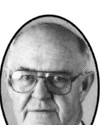Mr. Speaker, Bill C-43 comes within the comprehensive plan unveiled yesterday morning to restore the trust of the public in their institutions.
The bill focuses on lobbyists and thus, does not address issues pertaining to the code of conduct governing ministers and senior officials as well as parliamentarians. In that regard however, the Prime Minister indicated yesterday in his presentation that these issues will be dealt with in a subsequent bill.
The main elements of the bill are the following: first, lobbyists are required to disclose the specific subject-matter of their activities, the name of the government departments or institutions they will be lobbying, the communication techniques that will be used and, in certain cases, information about the true beneficiary of the lobbying.
Second, consultant lobbyists, that is to say those who work for lobbying firms, commonly referred to as professional lobbyists, are required to report this information for each new undertaking or contract, while in-house corporate and organizational lobbyists, those who work for large companies or interest groups, are required to report annually. Both tiers of lobbyists are required to report changes in this information within thirty days.
Third, the enactment allows lobbyists to file their returns electronically, sets the limitation period for enforcement proceedings at two years and provides for a Parliamentary review of the act in four years. The prescription period was extended to two years-from six months-with respect to proceedings before the counsellor, but this will be discussed later.
Finally, the enactment provides for the designation of an ethics counsellor who establishes a lobbyists' code of conduct and investigates alleged breaches of it.
The Bloc supports the establishment of an ethics counsellor position and is satisfied with the powers of investigation vested in the counsellor. Although the Bloc agrees with the appointment of Howard Wilson, who is now Assistant Deputy Registrar General, it had hoped that future ethics counsellors would be appointed by the House of Commons.
The Bloc is therefore disappointed to see that the Liberals will make the appointment through an order of the Governor-in-Council. The counsellor is supposed to be a kind of guardian of integrity. Why would he not be accountable to Parliament for his actions?
On the contrary, Bill C-43 sort of makes him accountable to the Prime Minister who, as we know, has partisan interests, unlike Parliament. The other guardian of public integrity, the Chief Electoral Officer, is appointed through a resolution of the House of Commons. The Bloc thinks that the guardian of this institution's integrity should be chosen on the same basis.
Finally, in response to the argument that the leaders of the opposition parties were consulted before Mr. Wilson was appointed, yes, it is true that a letter sent by the Prime Minister to the Leader of the Official Opposition and to the leader of the Reform Party mentions Mr. Wilson's appointment, but it was not the main purpose of the letter.
The Bloc agrees that Mr. Wilson's first mandate should be to develop a conflict-of-interest code for lobbyists. It is, however, disappointed that the Liberal government refuses to give regulatory status to the yet-to-be-developed code, which would have made it more legally binding. In my opinion, since the ethics code is neither a statutory instrument nor an act of Parliament, it has the substance and consistency of a prayer, which I think will make lobbyists, who are not in the habit of worrying about minor considerations, feel morally entitled to circumvent prayers.
Unfortunately, the Bloc would have liked the government to announce the end of tax deductions for lobbyists' fees, as the Minister of Transport suggested. This deduction means that taxpayers are indirectly financing the efforts of those trying to influence authorities.
Nowhere does the bill say that lobbying expenses or contracts will be made public. For the sake of openness, the public should have access to this information because it is very relevant for assessing what lobbyists do. At the very least, the bill could have provided that if there is an investigation, the counsellor should be required to make this amount public.
The bill has an attractive feature: disclosure of the means of communication used by the lobbyist. However, it is difficult for us to assess its significance at this stage. The regulations will surely make the scope of this provision clear. The bill also mentions electronic communication; it will favour communication by fax and other modern media. Regulations on these matters will follow.
To ensure greater transparency, as the Minister of Industry just said, the Liberal Party's position on the Lobbyists Registration Act, as stated on page 95 of the red book, is as follows: "To increase the transparency of the government's relations with lobbyists. . . a Liberal government will implement the. . . June 1993 report of the House of Commons Standing Committee on Consumer and Corporate Affairs respecting the Lobbyists Registration Act", known as the Holtmann report.
Among the main commitments of the Holtmann report, it said in Recommendation No. 1 that the distinction between Tier I lobbyists, who work for lobbying companies and are called consultant lobbyists in the new law, and Tier II lobbyists, who are paid employees of a corporation, for example, the vice-president of public relations at Bell Canada or another big corporation, should be eliminated.
In another recommendation, it said that the disclosure requirements should be the same for all lobbyists, in whatever category. Unfortunately, these recommendations were not followed and the dual system persists. These are major dilutions of the Holtmann report. How can you justify giving lobbyists for big corporations two months to file a return when consultant lobbyists must do so in 10 days? What is the rationale for such a distinction?
The Holtmann report also recommended that the Lobbyists Registration Act and the Lobbyists Registration Regulations be amended to force lobbyists to provide more details on the purpose of their efforts. More specifically, lobbyists should say whether their representations concern bills, amendments to acts, subsidies, contributions, regulations, policies, programs, contracts or legislative proposals. They should also mention who they are trying to influence and name the department responsible for the service concerned, as well as the office of the parliamentarian or organization contacted. That recommendation was also significantly watered down.
From now on, lobbyists, regardless of their category, will have to specify the purpose of their representations to the government. They will have to name which bill, proposal, legislation, resolution, regulations, program or subsidy is the object of their efforts. We notice that the government has listened to lobbyists representing major corporations and interest groups which can afford full-time lobbyists, and has maintained two tiers of lobbyists.
The Bloc Quebecois nevertheless congratulates the government for having gone a little farther. However, we are under the impression that the Liberals are like fishermen who do not enjoy fishing. They go fishing but they do so reluctantly. If they make a good catch, it does not necessarily make them happy. It is unfortunate that we do not see any real political will and drive to put the emphasis on the activities performed by lobbyists. This may be the biggest reproach that we can level at the Liberals, who nevertheless deserve some praise for having gone a little
farther, as I just said. By taking small steps from Parliament to Parliament, we may eventually reach our goal.




















































